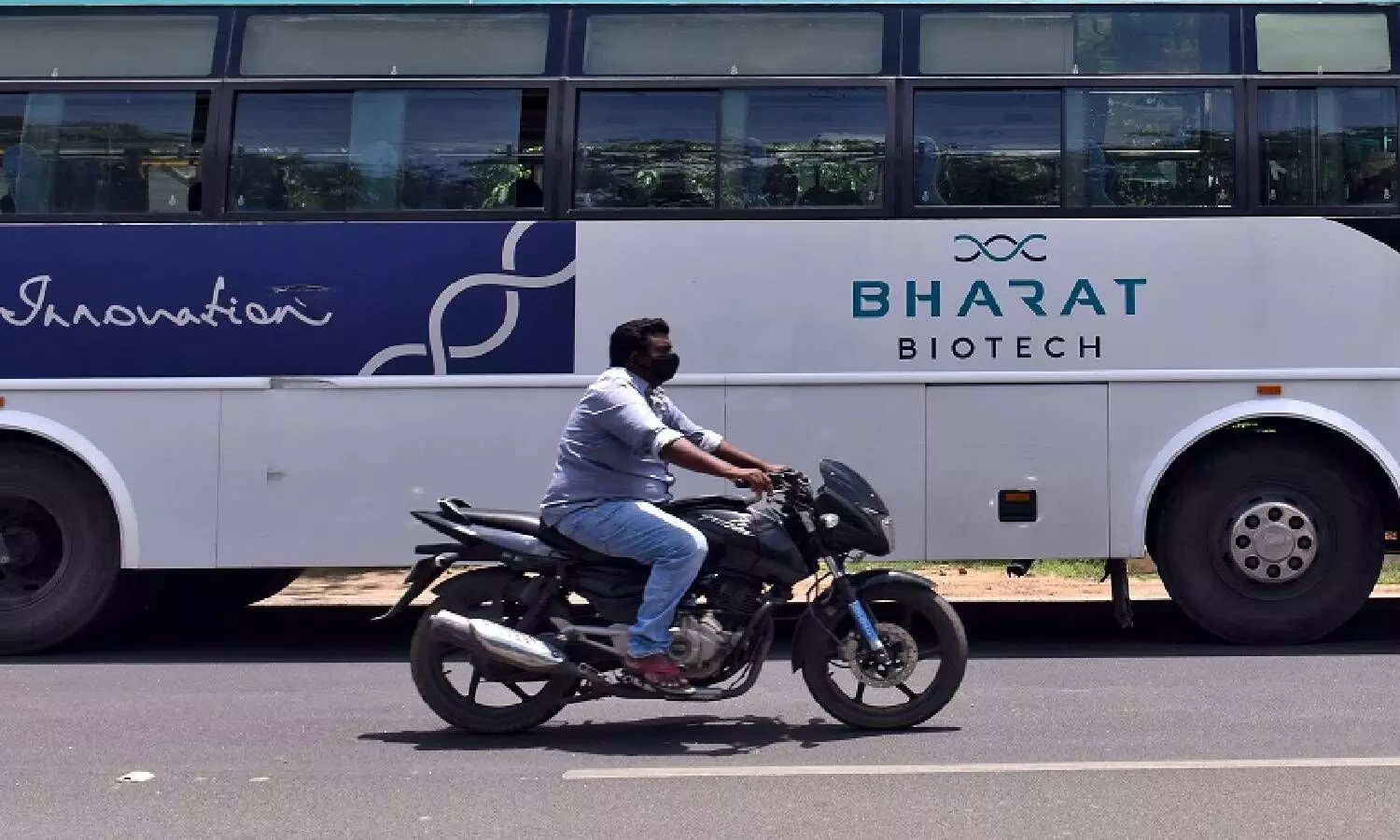Timeline: How Hyderabad-based Bharat Biotech developed effective vaccine against coronavirus
Covaxin has shown an interim vaccine efficacy of 81% in preventing Covid-19.
By Newsmeter Network Published on 4 March 2021 5:13 AM GMT
Hyderabad based Bharat Biotech on Wednesday announced Phase 3 results of COVID 19 vaccine `Covaxin', developed in partnership with Indian Council of Medical Research (ICMR).
Covaxin has shown an interim vaccine efficacy of 81% in preventing Covid-19.
Phase 1 and Phase 2 clinical trials conducted on 755 participants demonstrated a high safety profile of the candidate vaccine with seroconversion rates of 98.3% and 81.1% on day 56 and 104 respectively.
The journey of developing Indigenous vaccines was a complex endeavor that had to go through various stages. It almost takes four years to develop a normal vaccine. So far COVID 19 vaccine is concerned, the scientists and researchers developed it within a year.
Let's take a look at the journey of Bharat Biotech's Covaxin from Bench to Bedside.
March 11, 2020: When COVID-19 was declared a pandemic by the World Health Organization (WHO), India joined the global race of developing safe and effective vaccines to protect its citizens as well as the global community from this dreaded disease.
March 13, 2020: ICMR-National Institute of Virology (ICMR-NIV) successfully isolates the SARS-CoV-2(COVID19) virus. India becomes the 5th country in the world to achieve this feat.
April 2020: ICMR enters into a public-private partnership with Bharat Biotech International Ltd (BBIL) for developing an effective vaccine candidate for SARS-CoV-2.
May 2020: ICMR-NIV transfers the virus strain to BBIL and characterizes the vaccine developed by BBIL through in-vitro experiments and electron microscopy studies.
June-August 2020: Experiments in small animals (mouse, rats, and rabbits) and hamsters established promising safety and immunogenicity of COVAXIN. Data has been published by a highly reputed journal of the Cell Press.
July-August 2020: Studies conducted in rhesus macaques established the safety and protective efficacy of Covaxin. The results established the remarkable ability of the vaccine candidate to clear the virus from infected organs along with its capacity to mount B and T cell immune responses.
July-October 2020: Phase 1 and 2 clinical trials conducted in 755 participants demonstrated a high safety profile of the candidate vaccine along with seroconversion rates of 98.3% and 81.1% respectively on day 56 and 104 respectively. The results are published in the Lancet journal.
November 2020: The largest ever clinical trial for COVID-19 in India, launched for the third phase with over 25,800 participants
January 3, 2021: Drugs Controller General of India (DCGI) provides approval for Restricted Use in Emergency Situations for Covaxin.
January 16, 2021: India rolls-out phase-wise COVID-19 vaccine administration starting with healthcare and frontline workers
January 27, 2021: Covaxin's ability to neutralize UK variant strain of SARS-CoV-2 established and published in Journal of Travel Medicine. Link to research paper:
March 3, 2021: Interim results of Phase 3 efficacy trials of Covaxin show 81% efficacy against SARS-CoV-2virus. The follow-up of participants in the trial is still ongoing.
Covaxin has been developed on the WHO prequalified aerocell platform, which is globally recognized with a well-established track record of safety. COVAXIN's ability to neutralize the UK variant strain of SARS-CoV-2 has also recently been established.
"The development of Covaxin ensures that India has a powerful weapon in its arsenal in a continually evolving pandemic situation and will go a long way in helping us win the war against COVID-19. The need of the hour is to ensure that people in India continue to receive the vaccine and break the chain of virus transmission," said Dr. Samiran Panda, Head, Epidemiology and Communicable Disease, ICMR and Director, National AIDS Research Institute.
